Find Help
More Items From Ergsy search
-
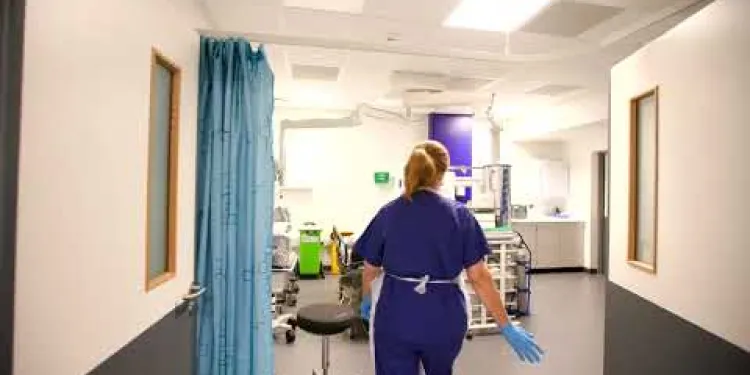
Endoscopy Unit
Relevance: 100%
-
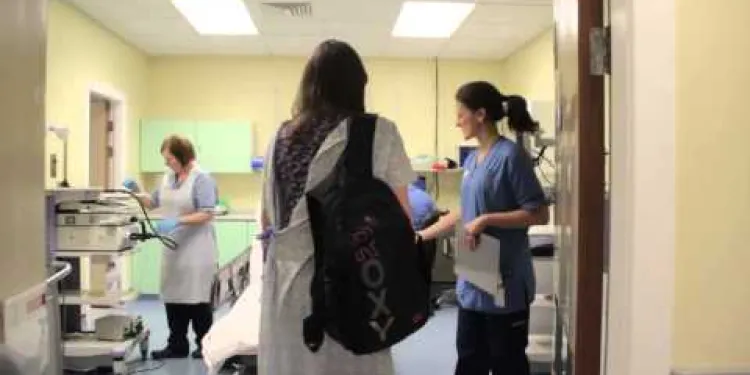
Your Visit to the Endoscopy Unit at NHS Tayside
Relevance: 91%
-
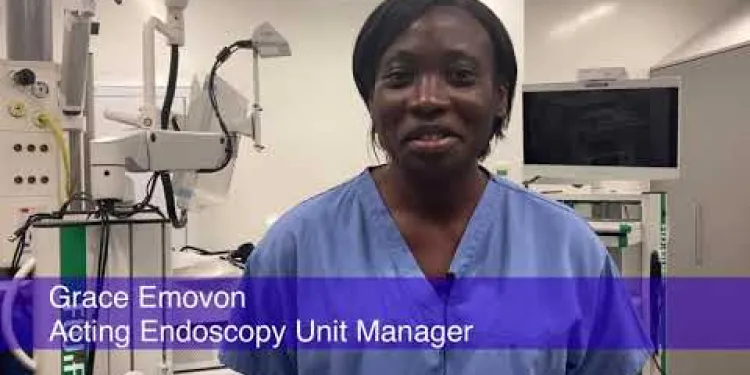
Coming to the Endoscopy Unit at Harrogate District Hospital
Relevance: 85%
-
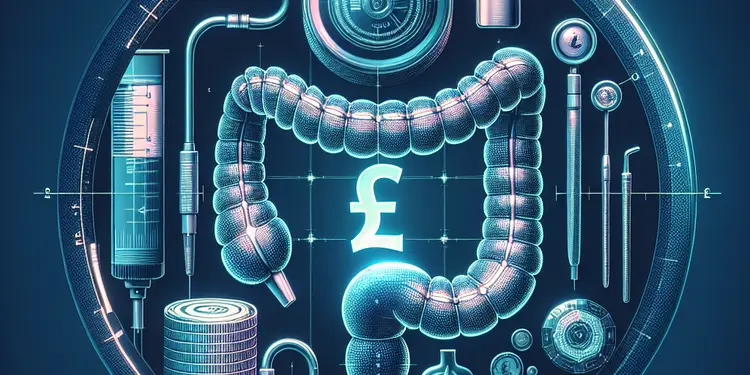
What is an endoscopy?
Relevance: 65%
-
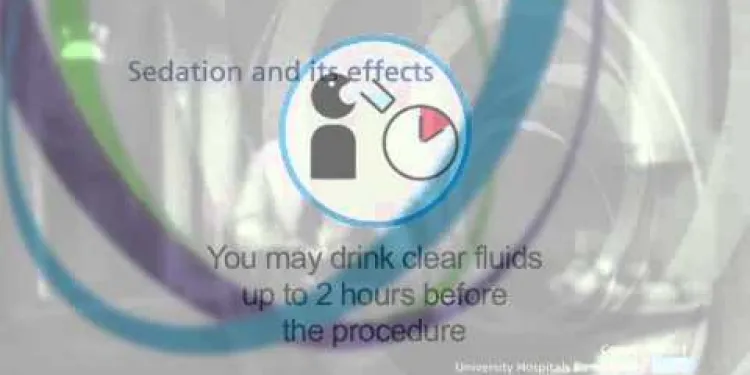
Endoscopy video preview
Relevance: 65%
-
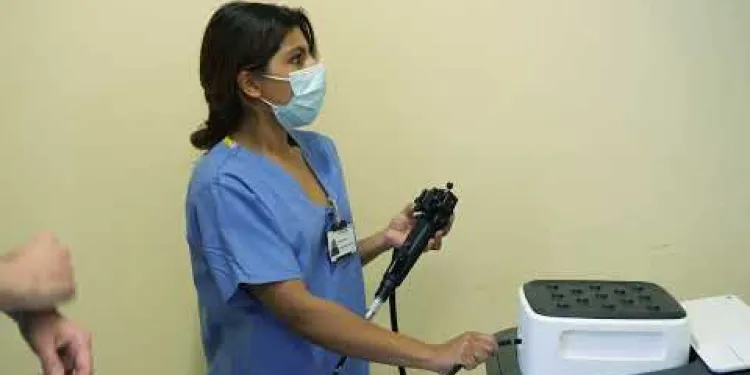
MTW Endoscopy service and training hub
Relevance: 63%
-
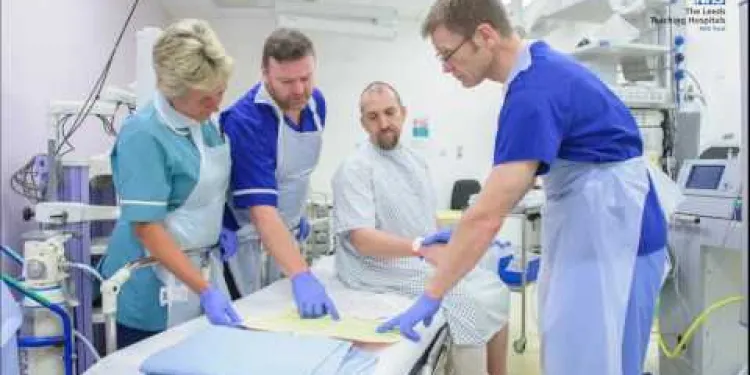
Endoscopy Introduction - The Patient Journey
Relevance: 62%
-
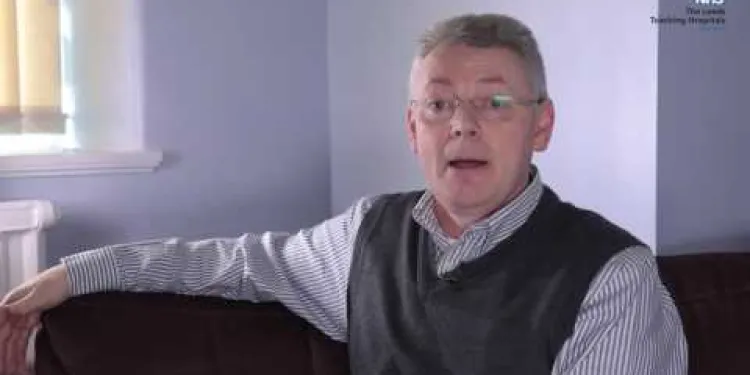
Mark Lancaster Patient Experience Leeds Endoscopy
Relevance: 58%
-
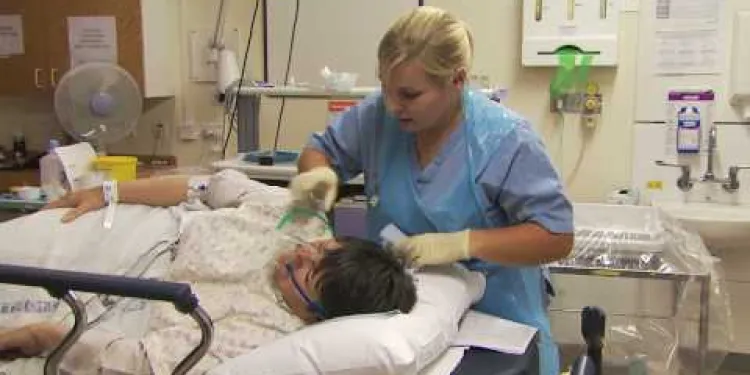
Bournemouth Digestive Diseases Centre: Endoscopy Procedure
Relevance: 55%
-
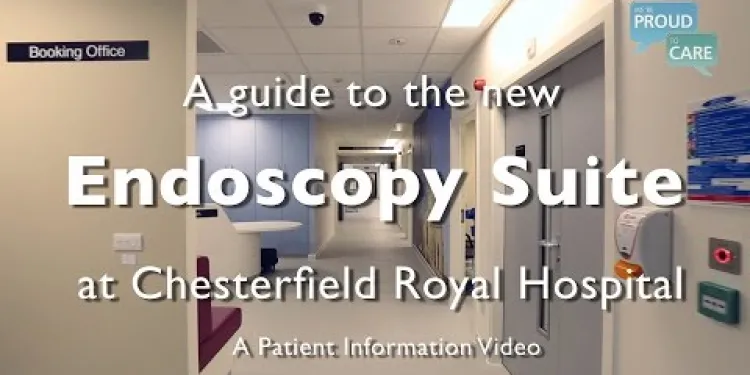
A guide to the new Endoscopy Suite at Chesterfield Royal Hospital NHS Foundation Trust
Relevance: 50%
-
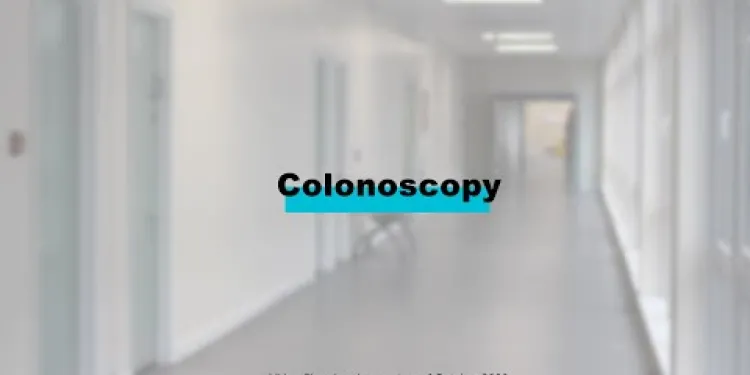
Endoscopy Procedures | Colonoscopy
Relevance: 43%
-
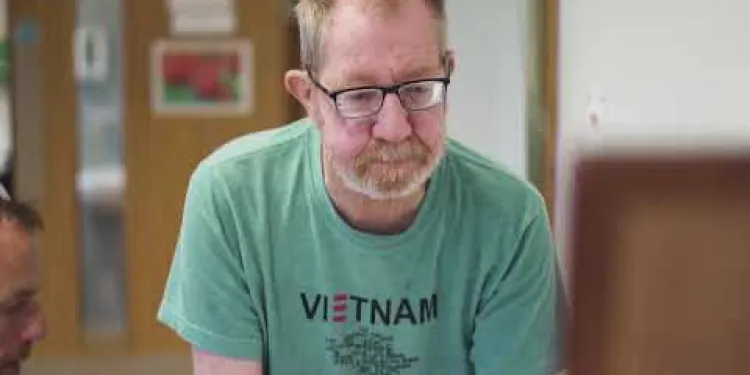
Vale Stroke Unit
Relevance: 43%
-

Are there mosquitoes in the United Kingdom?
Relevance: 38%
-

Are there Mosquitos in the United Kingdom?
Relevance: 38%
-

Is ketamine considered a controlled substance in the United States?
Relevance: 34%
-
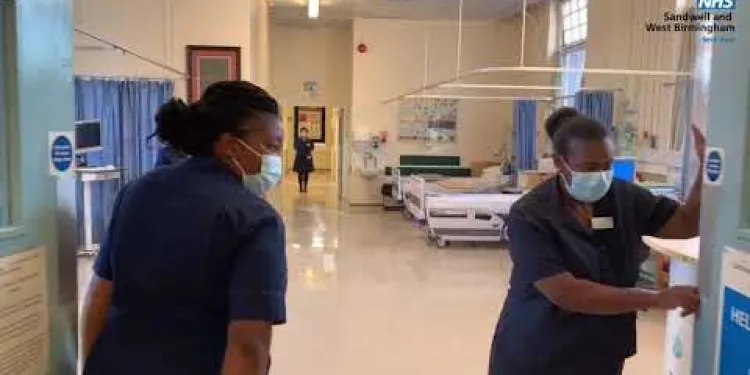
Tour of the Sickle Cell and Thalassaemia Unit at City Hospital | SCaT
Relevance: 34%
-
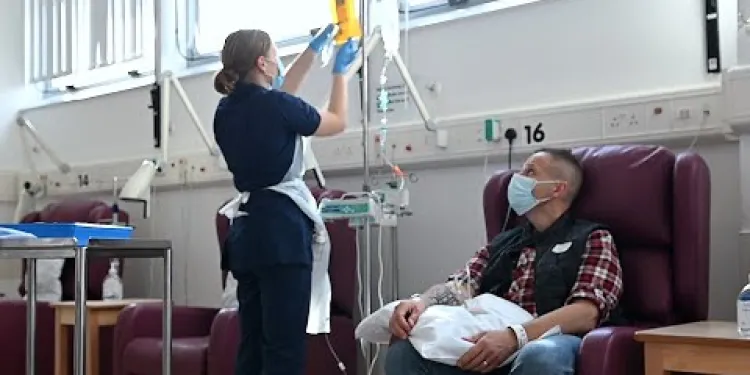
Having chemotherapy and other treatments in the Day Treatment Unit
Relevance: 33%
-

Is childhood obesity a concern in the United Kingdom?
Relevance: 33%
-

Is childhood obesity a concern in the United Kingdom?
Relevance: 27%
-
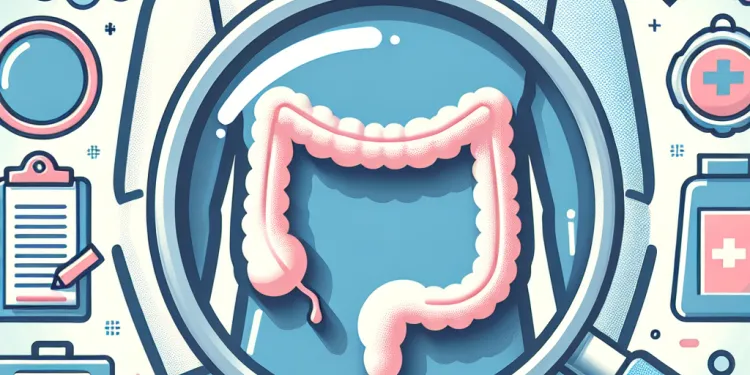
How is Crohn's disease diagnosed?
Relevance: 27%
-
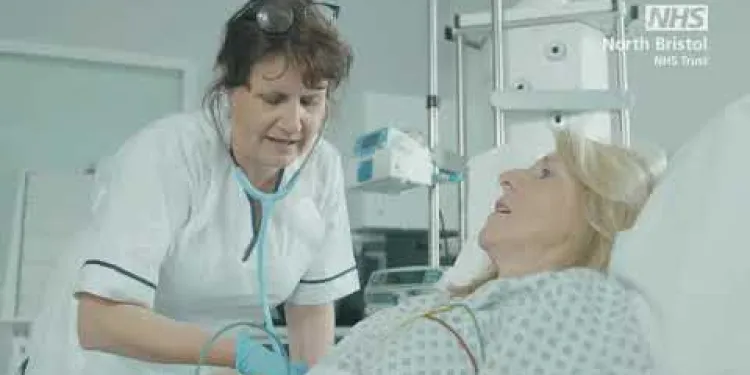
Your stay on the Intensive Care Unit at North Bristol NHS Trust
Relevance: 25%
-
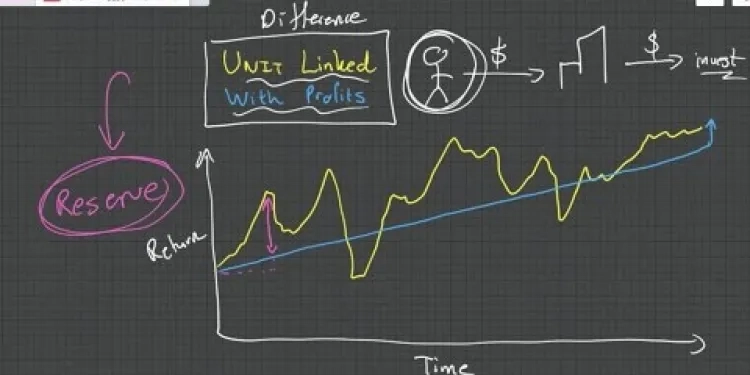
Life Insurance Difference between Unit Linked and With Profit Policies
Relevance: 24%
-
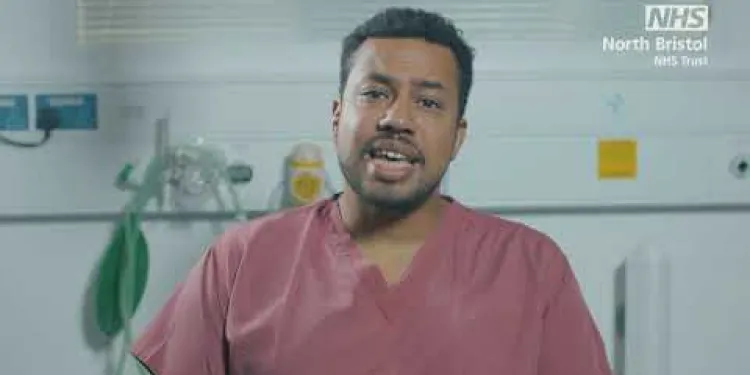
Surgery under local anaesthetic in the Minor Ops Unit at North Bristol NHS Trust
Relevance: 23%
-
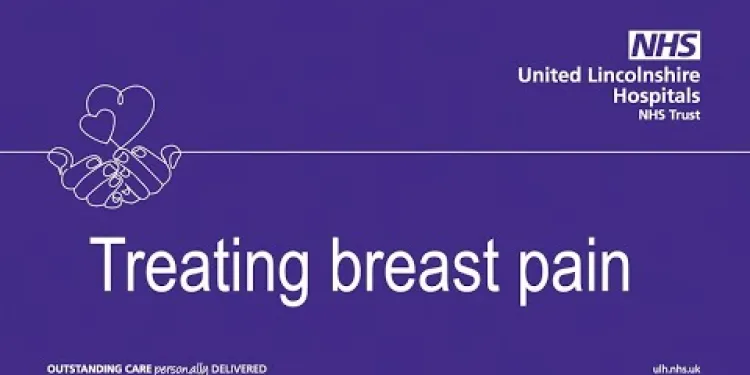
Treating breast pain | United Lincolnshire Hospitals NHS Trust
Relevance: 23%
-
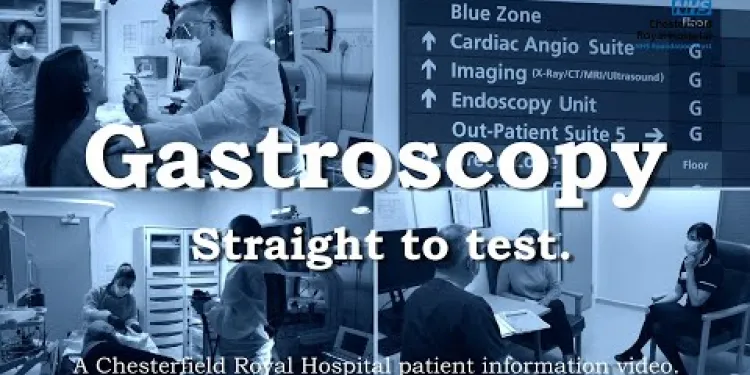
Gastroscopy - What to Expect on Referral to Chesterfield Royal Hospital
Relevance: 17%
-

What is safe alcohol consumption in Adults?
Relevance: 14%
-

Can children develop Crohn's disease?
Relevance: 13%
-
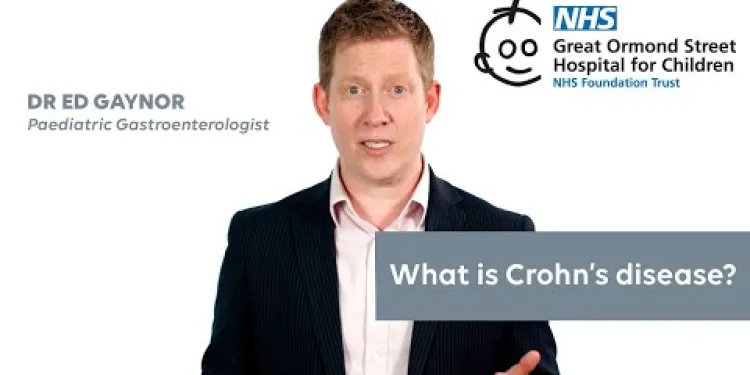
What is Crohn’s disease and how is it treated?
Relevance: 13%
-

What alternative methods exist to screen for colorectal cancer?
Relevance: 13%
-

Where is Lyme disease most commonly found?
Relevance: 11%
-

Which countries are affected by West Nile Virus?
Relevance: 11%
-

Does the energy price cap guarantee my total bill?
Relevance: 11%
-

How much does Botox cost?
Relevance: 11%
-

Does the classification of ketamine differ between countries?
Relevance: 11%
-

Did the US propose reforms to the WHO before deciding to leave?
Relevance: 11%
-

Mycobacterium chimaera infection
Relevance: 10%
-
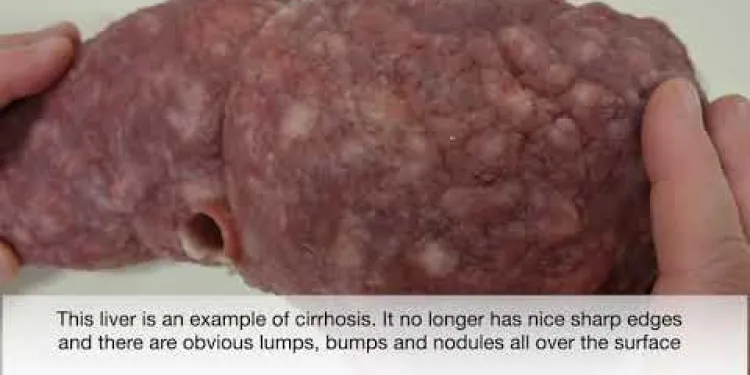
Alcohol Awarerness Week
Relevance: 10%
-

Which countries impose inheritance tax?
Relevance: 10%
-

What techniques are used for hair transplants in Turkey?
Relevance: 10%
-

Alcohol-Related Deaths in Scotland
Relevance: 10%
Coming to the Endoscopy Unit at Harrogate District Hospital
Preparing for Your Visit
When you have an appointment at the Endoscopy Unit at Harrogate District Hospital, it's essential to follow the preparation instructions provided by your healthcare provider. This may include dietary restrictions, fasting, or taking specific medications ahead of your procedure. Ensure all required forms and identification are prepared.
On Arrival
Upon arriving at Harrogate District Hospital, follow the signs to the Endoscopy Unit. It is important to arrive at least 20 minutes before your scheduled appointment to allow sufficient time for check-in procedures. Please bring your appointment letter, any relevant medical records, and a list of current medications.
The Procedure
The endoscopic procedure will be explained to you in detail by the medical team. They will discuss the purpose of the examination, the steps involved, and any potential risks or side effects. It's vital to ask any questions or voice any concerns you may have so you fully understand the process.
After the Procedure
After your endoscopy, you will be taken to a recovery area where the healthcare team will monitor you for any immediate reactions or side effects. It's advisable to arrange for someone to accompany you home, as sedation may impair your ability to drive or operate machinery. Follow all post-procedure instructions carefully, including any dietary or activity restrictions.
Follow-Up Care
The results of your endoscopy will be shared with you by your healthcare provider, either immediately or during a follow-up appointment. Ensure you understand any next steps or further treatments that may be necessary based on the findings of your procedure. Do not hesitate to contact the Endoscopy Unit if you experience unusual symptoms or have further questions.
Coming to the Endoscopy Unit at Harrogate District Hospital
Getting Ready for Your Visit
When you have an appointment at the Endoscopy Unit, the doctor will tell you how to get ready. You might have to eat certain foods, not eat at all for a while, or take some medicine before your visit. Make sure you have all the papers you need, like your ID and any forms the doctor gave you.
When You Arrive
When you get to the hospital, follow the signs to the Endoscopy Unit. Try to be there at least 20 minutes early. This gives you time to sign in. Bring your appointment letter, any medical papers you have, and a list of all the medicines you take.
The Procedure
A doctor or nurse will explain what will happen during the endoscopy. They will tell you why it is being done, how it will work, and any risks. Ask any questions you have. It is important to understand what will happen.
After the Procedure
After the endoscopy, you will rest in a special place. Nurses will make sure you are okay. It is a good idea to have someone with you to take you home because you might feel sleepy. Follow what the doctor says about eating and resting after your visit.
Follow-Up Care
The doctor will tell you the results of your endoscopy. This might happen right after or in another appointment. Make sure you understand what to do next. If you feel something is wrong or have more questions, call the Endoscopy Unit.
Frequently Asked Questions
What is an Endoscopy?
An endoscopy is a procedure that allows doctors to view and operate on the internal organs and vessels of your body. It is minimally invasive and often used to diagnose conditions or perform minor surgeries.
How do I prepare for my endoscopy at Harrogate District Hospital?
Your preparation may vary depending on the type of endoscopy you are having. Generally, you will need to fast for several hours and may be asked to follow a specific diet or take laxatives. Detailed instructions will be provided to you beforehand.
Do I need to bring anything with me to the endoscopy unit?
Bring any medications you are currently taking and your appointment letter. If you need to stay at the hospital, bring toiletries and comfortable clothing.
Can someone accompany me to the procedure?
Yes, you are welcome to have someone accompany you to the hospital. They may need to wait in a designated area during the procedure.
Will I be sedated during the endoscopy?
Most endoscopy procedures involve some form of sedation to help you feel comfortable. The type of sedation will depend on the procedure and your medical history. Your doctor will discuss this with you in advance.
How long does the endoscopy procedure take?
The typical endoscopy procedure lasts between 15 and 60 minutes, depending on the specific type of endoscopy being performed.
Can I drive after my endoscopy?
If you have been sedated, you should not drive or operate heavy machinery for at least 24 hours following the procedure. Arrange for someone to take you home.
What are the risks associated with endoscopy procedures?
Endoscopy procedures are generally safe but can carry some risks, such as bleeding, infection, or perforation of the organ being examined. Your doctor will discuss these risks with you before the procedure.
How will I receive the results of my endoscopy?
You may receive preliminary results immediately after the procedure. A full report will be sent to your referring doctor, who will discuss the results with you.
What should I do if I have complications after the endoscopy?
If you experience severe pain, excessive bleeding, or signs of infection such as fever, contact the hospital immediately or visit your nearest A&E.
Is there a cost for the endoscopy at Harrogate District Hospital?
Endoscopy procedures are usually covered by the National Health Service (NHS), so you should not incur any costs. However, private patients might have different arrangements.
Will I be able to eat or drink after the procedure?
You will be advised when you can start eating and drinking again. It may depend on the specific procedure and how you respond to the sedation.
Are there different types of endoscopy procedures?
Yes, common types include gastroscopy, colonoscopy, sigmoidoscopy, and bronchoscopy. Each type involves examining different parts of the body.
Will I need someone to stay with me after the procedure?
If you have been sedated, it's advisable to have someone stay with you for at least 24 hours after the procedure.
Can I take my regular medications before the procedure?
You should discuss your regular medications with your healthcare provider. Some medications may need to be stopped or adjusted before the procedure.
What is an Endoscopy?
An endoscopy is when a doctor looks inside your body. They use a thin, bendy tube with a camera on the end. This helps the doctor see what's happening inside you without making a big cut.
If you or someone you know is having an endoscopy, it can be helpful to look at picture books or videos about it. This can make it easier to understand what will happen. You can also talk to your doctor or a nurse if you have questions. They are there to help you!
An endoscopy is a special test. Doctors use it to see inside your body. They can look at your organs and blood vessels. It is a simple test and does not hurt much. Doctors use endoscopy to find out what is wrong or to do small operations.
If you find reading hard, try using tools like text-to-speech apps. This lets you listen instead of read. You can also ask someone to read with you to help understand better.
How do I get ready for my endoscopy at Harrogate District Hospital?
Getting ready for an endoscopy means making sure your body is prepared for the procedure. Here are some easy steps to follow:
1. Read the instructions: You will get a letter or paper from the hospital. It will tell you what to do. Ask someone to help you read it if you need help.
2. Eat and drink: You might need to stop eating or drinking for a little while before the endoscopy. The hospital will tell you when to stop. It might be after midnight or a few hours before your appointment.
3. Take your medicine: If you take medicine, ask the doctor if you should keep taking it before the endoscopy.
4. Ask questions: If you are not sure about anything, ask the nurse or doctor. They can help you understand.
5. Use tools to help: If reading is hard, use a ruler or finger to follow the words. You can also ask someone to read with you.
Remember, it's okay to ask for help. The hospital staff are there to make sure everything goes smoothly for you.
Getting ready for your endoscopy can be different depending on the type you are having. Usually, you should not eat for several hours before the test. You might also have to eat special foods or take medicine to clean out your tummy. You will get detailed instructions on what to do before your test.
What should I bring to the endoscopy appointment?
It is important to bring a few things with you to your appointment. Here is a list to help you:
- Your appointment letter.
- Any medicines you take.
- A book or toy if you get bored.
If you need help reading, you can bring a family member or friend.
Bring your medicines and your appointment letter. If you need to stay at the hospital, bring things like a toothbrush and comfy clothes.
Can someone come with me to the appointment?
You can bring someone with you to the hospital. They might have to wait in a special place while you have your treatment.
Will I be sleeping during the endoscopy?
When you have an endoscopy, you might get medicine to help you relax. This means you could feel sleepy. This can stop you from feeling any discomfort.
If you are worried, you can talk to the doctor or nurse. They will help you understand what will happen. You can also bring someone with you for support.
When you have an endoscopy, you usually get medicine to make you feel relaxed. This is called sedation. The kind of sedation you get depends on the test and your health. Your doctor will talk to you about this before the test.
How long does an endoscopy take?
An endoscopy is a test where doctors look inside your body. It usually takes about 15 to 30 minutes. Sometimes it can be a little longer. If you want, you can use a timer to help you know when it’s finished.
An endoscopy usually takes between 15 and 60 minutes. How long it takes depends on the type of endoscopy.
Can I drive after my endoscopy?
An endoscopy is a medical test to look inside your body.
After the test, you might feel sleepy because of the medicine used.
It is safer to have someone with you to help.
Ask someone you trust to drive you home.
Using reminder notes or a buddy system can be helpful.
If you have been given medicine to make you sleepy, do not drive or use big machines for at least one day after. Ask someone to drive you home.
What are the dangers of endoscopy procedures?
An endoscopy is when a doctor looks inside your body with a special camera.
Here are some dangers that might happen with an endoscopy:
- Feeling Sick: You might feel sick or have a sore throat after.
- Bleeding: Sometimes, you might bleed a little.
- Infection: There is a small chance you could get an infection.
- Damage: Rarely, the camera could hurt your insides.
If you are worried about endoscopy, you can talk to your doctor. They will help you understand more.
You can also use tools like picture cards or videos to learn about it in a simple way.
Endoscopy is a safe test doctors do to look inside your body. But there are some risks. These risks include bleeding, infection, or a small tear in the organ being looked at. Your doctor will talk to you about these risks before the test.
How will I get my endoscopy results?
After your endoscopy, the doctor will tell you what they found. They might talk to you in person. You might also get a letter with your results.
If you have questions, ask the doctor or nurse to help explain.
It can be good to have a friend or family member with you. They can help you remember what the doctor says.
You might get some results right after the test. The full report will be sent to your doctor. Your doctor will talk to you about the results.
What should I do if I have problems after the endoscopy?
If you feel unwell after your endoscopy, tell an adult you trust.
Try these helpful steps:
- Ask a family member or friend for help.
- Call your doctor or nurse.
- If it is an emergency, call for medical help right away.
Talking to someone and asking for help is important. Remember, you are not alone.
If you feel very strong pain, bleed a lot, or think you might have an infection like a fever, tell the hospital right away or go to the closest emergency room.
Do you have to pay for an endoscopy at Harrogate Hospital?
If you're going to Harrogate Hospital for an endoscopy, you might wonder if it costs money. Here are some simple ways to find out:
- Check with the hospital to see if you need to pay.
- Ask a family member or friend to help you call the hospital.
- Look on the hospital's website for information about endoscopy costs.
You can always ask someone at the hospital if you need more help.
The National Health Service (NHS) usually pays for endoscopy tests. This means you should not have to pay money. But if you go to a private doctor, it might be different.
Can I eat or drink after the treatment?
Yes, you can eat and drink after the treatment. Here are some tips to help you:
- Start with soft foods. They are easier to eat.
- Take small bites and chew slowly.
- Drink water if your mouth feels dry.
- If you feel unsure, ask a doctor or nurse.
You will be told when you can eat and drink again. This depends on what was done and how you feel after the medicine.
Are there different kinds of endoscopy tests?
Yes, there are different kinds of endoscopy tests. An endoscopy is when a doctor uses a special tool to look inside your body. There are different tests for different parts of the body.
Some common types are:
- Gastroscopy: This looks at your food pipe and stomach.
- Colonoscop
Yes, there are different kinds. These include:
- Gastroscopy: This looks inside the stomach.
- Colonoscopy: This checks the inside of the large intestine.
- Sigmoidoscopy: This examines the bottom part of the large intestine.
- Bronchoscopy: This looks at the lungs.
Each one checks a different part of the body. If you find it hard to read, try using an audiobook or ask someone for help. You can also use a text-to-speech tool to read it out loud for you.
Do I need someone to be with me after the procedure?
After the procedure, it can be a good idea to have someone stay with you. They can help if you feel tired or need support. A friend or family member can be there to make sure you are okay. You can also ask them to help with anything you need. It's always nice to have someone to talk to and keep you company.
If you have been given medicine to make you sleepy, it is a good idea to have someone stay with you for at least one whole day afterwards.
Can I take my usual medicine before the procedure?
Ask your doctor if you can take your medicine before the procedure. They will tell you what to do. If it is okay, you can take your medicine with a small sip of water. Use a calendar or reminder app to help you remember.
Talk to your doctor about the medicines you take every day. Some medicines might need to be changed or stopped before you have the procedure.
Useful Links
This website offers general information and is not a substitute for professional advice.
Always seek guidance from qualified professionals.
If you have any medical concerns or need urgent help, contact a healthcare professional or emergency services immediately.
Some of this content was generated with AI assistance. We’ve done our best to keep it accurate, helpful, and human-friendly.
- Ergsy carfully checks the information in the videos we provide here.
- Videos shown by Youtube after a video has completed, have NOT been reviewed by ERGSY.
- To view, click the arrow in centre of video.
- Most of the videos you find here will have subtitles and/or closed captions available.
- You may need to turn these on, and choose your preferred language.
- Go to the video you'd like to watch.
- If closed captions (CC) are available, settings will be visible on the bottom right of the video player.
- To turn on Captions, click settings .
- To turn off Captions, click settings again.
More Items From Ergsy search
-

Endoscopy Unit
Relevance: 100%
-

Your Visit to the Endoscopy Unit at NHS Tayside
Relevance: 91%
-

Coming to the Endoscopy Unit at Harrogate District Hospital
Relevance: 85%
-

What is an endoscopy?
Relevance: 65%
-

Endoscopy video preview
Relevance: 65%
-

MTW Endoscopy service and training hub
Relevance: 63%
-

Endoscopy Introduction - The Patient Journey
Relevance: 62%
-

Mark Lancaster Patient Experience Leeds Endoscopy
Relevance: 58%
-

Bournemouth Digestive Diseases Centre: Endoscopy Procedure
Relevance: 55%
-

A guide to the new Endoscopy Suite at Chesterfield Royal Hospital NHS Foundation Trust
Relevance: 50%
-

Endoscopy Procedures | Colonoscopy
Relevance: 43%
-

Vale Stroke Unit
Relevance: 43%
-

Are there mosquitoes in the United Kingdom?
Relevance: 38%
-

Are there Mosquitos in the United Kingdom?
Relevance: 38%
-

Is ketamine considered a controlled substance in the United States?
Relevance: 34%
-

Tour of the Sickle Cell and Thalassaemia Unit at City Hospital | SCaT
Relevance: 34%
-

Having chemotherapy and other treatments in the Day Treatment Unit
Relevance: 33%
-

Is childhood obesity a concern in the United Kingdom?
Relevance: 33%
-

Is childhood obesity a concern in the United Kingdom?
Relevance: 27%
-

How is Crohn's disease diagnosed?
Relevance: 27%
-

Your stay on the Intensive Care Unit at North Bristol NHS Trust
Relevance: 25%
-

Life Insurance Difference between Unit Linked and With Profit Policies
Relevance: 24%
-

Surgery under local anaesthetic in the Minor Ops Unit at North Bristol NHS Trust
Relevance: 23%
-

Treating breast pain | United Lincolnshire Hospitals NHS Trust
Relevance: 23%
-

Gastroscopy - What to Expect on Referral to Chesterfield Royal Hospital
Relevance: 17%
-

What is safe alcohol consumption in Adults?
Relevance: 14%
-

Can children develop Crohn's disease?
Relevance: 13%
-

What is Crohn’s disease and how is it treated?
Relevance: 13%
-

What alternative methods exist to screen for colorectal cancer?
Relevance: 13%
-

Where is Lyme disease most commonly found?
Relevance: 11%
-

Which countries are affected by West Nile Virus?
Relevance: 11%
-

Does the energy price cap guarantee my total bill?
Relevance: 11%
-

How much does Botox cost?
Relevance: 11%
-

Does the classification of ketamine differ between countries?
Relevance: 11%
-

Did the US propose reforms to the WHO before deciding to leave?
Relevance: 11%
-

Mycobacterium chimaera infection
Relevance: 10%
-

Alcohol Awarerness Week
Relevance: 10%
-

Which countries impose inheritance tax?
Relevance: 10%
-

What techniques are used for hair transplants in Turkey?
Relevance: 10%
-

Alcohol-Related Deaths in Scotland
Relevance: 10%


